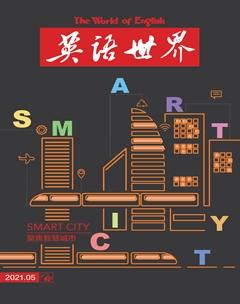中国梦 The Chinese Dream
李君如
1932年11月,在全國享有盛誉的《东方杂志》发起过一场主题为“于1933年新年大家做一回好梦”的征文活动。这场征文活动,旨在征求两个问题的答案:(一)先生梦想中的未来中国是怎样?(二)先生个人生活中有什么梦想?
In November 1932, Oriental Journal, a magazine of high prestige, published articles with themes such as “Everybody has a dream in the upcoming year of 1933.” The articles were meant to answer two questions: 1. What is the future of China like in your dream? 2. What dream do you have for your own life?
1933年出版的《东方杂志》头两期以大篇幅2刊出了144人的“梦想”,其中包括柳亚子、巴金、徐悲鸿、邹韬奋、郁达夫、茅盾、老舍、林语堂等大批人尽皆知的知识分子。
The first two issues of Oriental Journal, published in 1933, dedicated copious amounts of writing to “dreams” of 144 people, including well-known intellectuals such as Liu Yazi, Ba Jin, Xu Beihong, Zou Taofen, Yu Dafu, Mao Dun, Lao She, Lin Yutang.
谢冰莹(著名女作家,1906—2000)先生在征文中写道:“我梦见一个没有国界,没有民族,没有阶级区别的大同世界3:所有的人无论男女老幼都要工作,这工作是为他们自己,为他们自己的阶级和整个人类所需要而做的。他们过着很快乐的自由平等的生活;有书读,有游艺4,有一定的休息时间,他们享受着自己所生产出来的一切权利。这里没有侵略,没有剥削,没有嫉妒和欺骗,没有战争和屠杀,有的是共同愉快的生活,努力前进的精神!互相帮助,互相亲爱,全世界成了一个组织5。而中国就是这一组织系统下的细胞之一,自然也就是没有国家,没有阶级,共同生产,共同消费的社会主义国家。”
Xie Bingying (famous female writer, 1906–2000) wrote in her article: “I dream of a stateless world in which there are no boundaries, no nations, and no class distinctions. All members, male or female, old or young, must work for themselves and for the needs of their class and fellow humans. They lead a happy, free, and equal life. They have books, entertainment, and a fair amount of time to rest. They enjoy all the rights they produce for themselves. There is no invasion or exploitation, no jealousy or cheating, no war or slaughter; there is only the spirit to live happily together and drive forward! Help each other and love each other so that the whole world may become a single entity. Since there will be no states or classes, China will only be a cell of this organization. People will work and consume together in this socialist country.”
罗文干(著名外交家、司法官员,1888—1941)先生在征文中写道:“政府能统一全国,免人说我无组织。内争的勇敢毅力,转用来对外。武官不怕死,文官不贪财。妇女管理家务,崇尚勤俭,不学6摩登。青年勤俭刻苦,不穿洋服,振兴国货。土匪绝迹,外患消除,四民7安居乐业,世界共享太平。”
Luo Wengan (diplomat, judicial official, 1888–1941) wrote in his article: “The government must be able to unify the country so nobody can say that we lack organization. We must redirect the fire from internal conflicts to face foreign invaders. Military officers must not be afraid of death, and civil officials must not be greedy. Women must manage the household with hard work and thrift—abstaining from modern fashion. Young people must work hard, lead a frugal life, and stay away from western-style fashion to help domestic products prosper. Bandits disappear and external threats are cleared. Everybody enjoys a happy and prosperous life, and the world enjoys peace.”
郑振铎(著名作家、翻译家,1898—1958)先生在征文中写道:“我并没有什么梦想,我不相信有什么叫‘梦想的。人类的生活是沿了必然的定律走去的。未来的中国,我以为,将是一个伟大的快乐的国土。因了我们的努力,我们将会把若干年帝国主义者们所给予我们的创痕与血迹,医涤8得干干净净。我们将不再见什么帝国主义者们的兵舰与军队在中国内地及沿海边停留着。我们将建设了一个伟大的社会主义的国家;个人为了群众而生存,群众也为了个人而生存。军阀的争斗,饥饿,水灾,以及一切苦难,都将成为过去的一梦。这并不是什么‘梦想,我们努力,便沒有什么不会实现的!而现在正是我们和一切恶魔苦斗的时候!”
Zheng Zhenduo (writer, translator, 1898–1958) wrote in his article: “I dont have any such ‘dream. I dont believe in anything that is called a ‘dream. Human life must progress on a certain principle. I deem that in the future, China will be a great and happy land. With our effort, we will thoroughly cleanse the scars and bloodstains that the imperialists have left on us. We will not see any more imperialist warships and troops stationed in our inner and coastal areas. We will build a great socialist country. The individual exists for the mass and vice versa. Fights among warlords, hunger, floods, and any other tribulations will become something of the past. This is not a ‘dream. As long as we work hard, there is nothing that we cannot achieve! Now, it is time we fought against these vicious devils!”
这场征文活动所反映的情况,可以看出当年中国人的梦想是什么。这几位著名的知识分子都不是共产党员,但是他们关于未来中国的梦想,反映了近代以来在中国社会内部涌动着并紧密结合在一起的爱国主义和社会主义两大进步思潮的要求,凝结着近代以来中国人的理想和中国不以任何人意志为转移的走向9。 □
These articles reflected the dreams that Chinese people had in those years. The distinguished intellectuals who wrote the articles were not members of the Communist Party, but their dreams of Chinas future reflected two progressive ideologies in Chinese society—patriotism and socialism. They crystallized the ideals of modern Chinese people and demonstrated that those ideals could not be swayed. ■
1王之光,本文作者,浙大宁波理工学院副教授。本文节选自《中国梦,什么梦》(外文出版社,2015年)。张静燕,本文注释者。 2“以大篇幅”通常会译为in a large space,这里将状语转译成定语。 3“大同世界”译为a stateless world与上下文意思符合。 4“有书读,有游艺”意为“They have books to read, entertainment to enjoy”,此处为减译。
5“组织”通常译为organization,此处译为entity(实体)稍作诠释。 6此处“不学”转译为abstain from[(自我克制地)戒除;不(做)],更加符合原文的意思。 7“四民”是古代中国政府对平民职业的基本分工,指士(读书人)、农、工、商,此处泛指“所有人”,译为everybody。
8 cleanse有清洗(伤口)的意思,更有“使净化”的意思,除了文中的“洗去”(创痕与血迹)之意,隐含了精神上的“净化”之意。 9此句中文只有一个动词“凝结着”,此处意译为crystallize,同时,为使句子平衡,增译了一个动词demonstrate。

